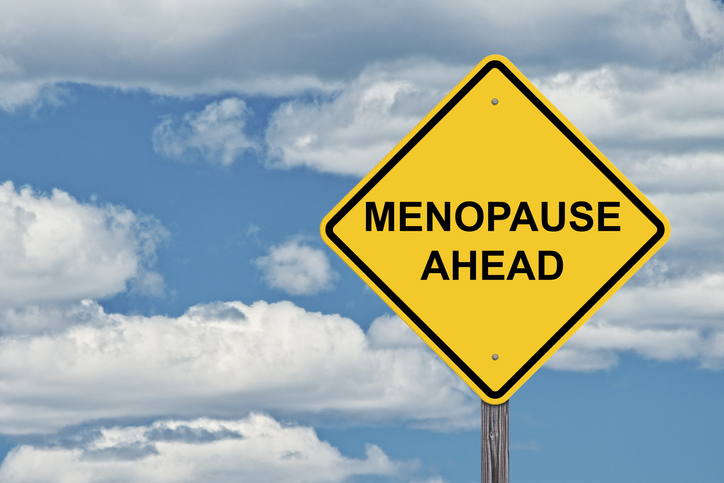Your Guide to Menopause – What to Expect
Menopause is an inevitable, and natural, stage of life but it helps to know how it can affect you.

Menopause happens naturally with age, but it can also occur from surgery, treatment of a disease, or an illness. Then it may be called a premature or surgical menopause.
Menopause is the end of a woman’s menstrual cycle and fertility and happens when the ovaries no longer make oestrogen and progesterone, two hormones needed for fertility. Usually it also means you have been without periods for a full year.
A natural menopause starts around age 51, but it can happen before or after then, and the age at which yours will start is mostly determined by your genes, so check with your mother as that may well be your pattern too.
What are the symptoms?
When it starts naturally, the first sign may be an irregular menstrual cycle. Once it gets off-schedule, it should stop completely within about 4 years. You might also notice these symptoms:
- Mood swings
- Lower sex drive
- Hot flushes
- Sweating
- Racing heart
- Headaches
- Vaginal dryness and soreness
- Painful sex
- Trouble sleeping
Some symptoms can last for years and affect your quality of life.
What are the stages?
It does not happen all at once, but instead the process happens slowly over three stages:
Perimenopause is when your cycles will become irregular, but they haven’t stopped. In women this occurs around age 47 and, a word of caution, even though you might notice symptoms like hot flushes you can still get pregnant.
Menopause is when you’ll have your final menstrual period, but won’t know for sure it’s happened until you’ve gone a year without one. Hot flushes, vaginal dryness, sleep problems, and other symptoms are common in this stage.
Postmenopause begins when you have gone a year from your final period. Once that happens, you’ll be referred to as postmenopausal for the rest of your life. Unfortunately, many women do continue to have hormonal symptoms post menopause and do keep in mind that after more than a year of no menstrual periods vaginal bleeding isn’t normal, so tell your doctor if you have any.
How will I know?
The most accurate way to tell if it’s happening to you is to watch your menstrual cycles for 12 months in a row. It helps to keep track of your periods and chart them as they become irregular.
Your doctor can check your blood for follicle stimulating hormone (FSH). The levels will rise as your ovaries begin to shut down and as your oestrogen levels fall you may notice hot flushes, vaginal dryness, and less lubrication during sex.
The tissue in and around your vagina will thin as oestrogen drops, too and as this happens, you might have urinary incontinence, painful sex, a low sex drive, and vaginal itching or even vaginal atrophy.
What can I do to help symptoms?
Starting with the things that you can control is a good idea, and so lifestyle changes really do make a difference. A healthy diet and regular exercise will help manage your symptoms and boost your health and this is a great time to finally kick any old, unhealthy habits like smoking or drinking too much alcohol.
To help with hot flushes, dress lightly and in layers and avoid known triggers like caffeine and spicy foods. And if you stay sexually active, that may help preserve your vaginal lining, and a lubricant can be effective if dryness is an issue.
Generally at menopause women are offered HRT, but it isn’t for everyone. The risks associated with it are linked to both oestrogen and the synthetic progestins it often contains so it is not advisable if you’ve ever had breast, uterine or endometrial cancer, blood clots, liver disease, or a stroke.
However your doctor may also suggest alternatives to HRT such as antidepressants, antiseizure drugs, or blood pressure medications to help with hot flushes and mood swings.
An alternative approach
Many women choose not to use HRTor will try it and find that it does not suit them or they have side-effects from it such as weight gain and bloating.
You can also use bioidentical hormones to help with your symptoms, Serenity is progesterone only and is known to help sleep and be a relaxant and is the primary hormone needed if you want to build bone if you are at risk for osteoporosis.
If you also need a small amount of oestrogen, as many women do for vaginal dryness and for more severe anxiety or depression, then a combination cream with both progesterone and oestrogen such as 20 to one could be an alternative.
Helpful information:
One of the key factors that is not much talked about, but it’s certainly very important, is the fact that stress and anxiety will definitely have an effect upon your hormones – and that means upon your symptoms too. Unfortunately the money changes that Menopause brings can also cause a rise in stress and anxiety due to the disruption from hot flushes, potential loss of sleep, and the emotional changes and also occur at this time.
There are many other alternative methods for treating menopause symptoms such as acupuncture, meditation, and relaxation techniques as well as traditional herbs used over many centuries to alleviate symptoms such as flushes.


















